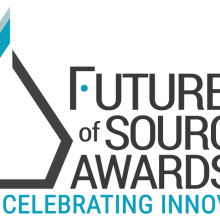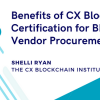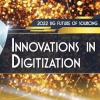Can you outline why your team embarked on this project and the problem that needed to be solved?
The Sourcing Playbook is a set of flexible, standardized templates with accompanying training for certain critical deliverables within FedEx Services Sourcing & Procurement’s Sourcing Methodology (sourcing process).
Prior to the Playbook, the organization had recently completed significant enhancements to its Sourcing Methodology and Sourcing Governance processes. The 4-step Sourcing Methodology consisted of project milestones and deliverables and was backed by a flexible, 133-step project plan. The Sourcing Governance process ensured alignment with (and sign-off from) officer-level business stakeholders throughout any sourcing initiative.
However, critical deliverables of the Methodology, such as TCO, negotiation strategy, and implementation plan, lacked a common format or training/guidance. This led to inconsistencies in how Category Managers approached these deliverables. Category Managers consistently asked for guidance from managers and senior-level ICs within the organization.
The stated goal of the project was to build a Sourcing Playbook of flexible, best-in-class templates and training/Standard Operating Procedures to provide the Sourcing team with a solid foundation of core processes and save time while delivering a more consistent overall experience to business stakeholders. The Playbook would ensure consistently outstanding results while allowing Category Managers the flexibility to adapt when needed to fit the category.
The team set the initial scope of the Playbook as 7 key deliverables within the Sourcing Methodology:
- Opportunity Statement (problem statement)
- Business Requirements Documentation
- Savings Hypothesis
- Total Cost of Ownership (TCO) Model
- Sourcing Strategy & Action Plan
- Negotiation Strategy
- Implementation Plan
How were things done originally and what was the inspiration to innovate the process?
Prior to the playbook, Category Managers created their own deliverables from scratch, or used a variety of formats from prior sourcing initiatives. This led to inconsistent application across manager teams and inefficiency and rework in the sourcing process.
The lack of consistency (and sometimes quality) in the various deliverables across the organization, along with feedback from Category Managers that guidance and templates would be a force multiplier, led to the project being chartered and approved by sourcing leadership.
What KPIs did you use to measure success for this project? (For example: performance, customer satisfaction, revenue, sales or relevant financial gains?)
The primary KPIs for this project post-implementation were feedback from our team of ~70 Category Managers and the quality of the work produced using the new templates and guidance. Feedback from the Category Managers has been universally positive, and the quality of the deliverables for sourcing initiatives since the launch has been outstanding.
Our Category Managers are spending more time thinking through the details of each key deliverable and less time drafting, formatting and reworking them. In addition, team members have even begun submitting their own work as examples to be added to the training.
This project has been a critical enabler for our team, particularly as new Category Managers join the organization. Now, along with a robust, well-planned Sourcing Methodology and Governance process, we are able to provide training and templates for the most critical steps within the sourcing process. We’re able to get new Category Managers up to speed faster and producing better work product.
How you plan to ensure that the new model remains relevant and adapts to the future needs of the market?
We will continue to review outside research and periodically modify the templates and training as necessary. In addition, as our Category Managers make their own enhancements to the templates, we will evaluate and incorporate best practices to ensure the templates stay current and represent the best the organization has to offer.
What advice do you have for those who may want to implement this innovative approach in their own organizations?
Don’t overthink it – put your best talent on the project team, leverage the best examples of key sourcing deliverables within the organization today, and combine it with outside research to develop the initial set of templates and training. Chances are, whatever the team produces will be a step above what most of your team is working with today. Build from that foundation as new examples and new ideas become available. We were able to go from charter to implementation in just 8 weeks, and the project was led by an intern!
What can you share that other companies can take as a “lesson learned” about talent management from your project?
A key component of effective talent management is ensuring your people have the training, tools, and resources to be effective in their jobs. Enterprise sourcing initiatives, particularly at companies with the operational scale of FedEx, can be enormous in scope and complexity, and asking Category Managers to build a comprehensive TCO, negotiation strategy, or implementation plan can feel overwhelming. We’ve found that providing comprehensive training and templates has led to a more consistent product and better business decisions.







